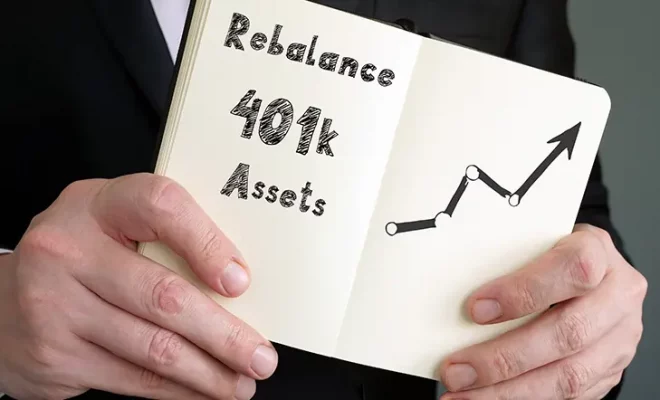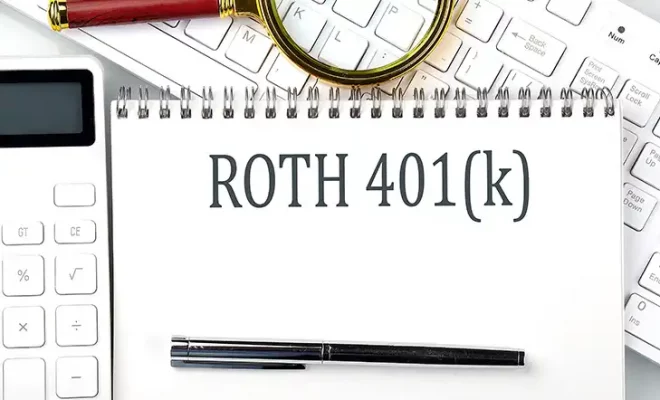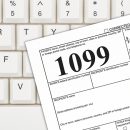How Often Should You Check Your Retirement Account Balance?

Maintaining a balanced approach is critical in financial planning. Overindulgence in information can lead to poor decisions, and excessive monitoring of your retirement account balance can result in stress. This, in turn, can push you to make reactive choices that may not always work in your favor. Checking your retirement account balance too often can have a psychological impact on you. Therefore, exploring the optimal frequency for checking your retirement account is essential. The focus should be on staying informed without succumbing to obsessive behavior and overthinking.
Consult with a professional financial advisor who can help create a balanced strategy toward retirement planning and portfolio reviewing, ensuring both financial stability and peace of mind on your journey toward retirement. This article will discuss the optimal number of times you should check your average retirement account balance and what you can do to avoid unnecessary stress.
Table of Contents
When should you check your retirement account balance?
Checking your retirement account balance is an important aspect of managing your money and planning for your retirement. However, there is no one-size-fits-all approach to when you should check it. Ideally, it is recommended not to overdo it to avoid stress and panic. The frequency at which you check your retirement account balance depends on your financial goals, personality, and the current stage of your life.
While there is no fixed time to check your balance, the following situations may demand your attention:
1. When you start retirement planning
When you begin your retirement planning journey, checking your retirement account is vital. This can help you establish a strong foundation and craft your investment strategy. Checking your retirement account balance early on is essential to confirm that your asset allocation matches your risk tolerance and long-term goals. It gives you a glimpse into where you stand at the beginning of the journey and helps you ascertain the gap you need to bridge to retire securely.
2. When you are considering rollovers, conversions, or transfers
It is essential to check your retirement balance when you make critical changes, such as a rollover, conversion, or transfer. You must check your retirement account balance when you are rolling over your funds from a Traditional to a Roth account to understand your tax liabilities. A rollover attracts taxes in the year of conversion. The amount of tax you pay will be directly proportional to your average retirement account balance. Therefore, it is important to check it to make an informed decision.
You should follow the same approach if you are transferring accounts. For instance, you can transfer your 401(k) funds from your old employer to the new one when you switch jobs. This can be a crucial time to check your balance, understand your investments, and make changes in your new account based on how your investments have fared so far.
Remember that rollovers and transfers can impact your overall portfolio allocation and tax implications. Ensuring these moves align with your broader financial plan and do not inadvertently disrupt your retirement savings is crucial.
3. During significant life events such as marriage, divorce, parenthood,
Life’s significant milestones often bring about changes in your financial situation. Marital status changes, like marriage or divorce, can prompt you to reevaluate beneficiaries and account ownership. You may even want to contribute more to your account to secure your loved ones later or cut back on your contributions to accommodate new expenditures. For instance, if you have a child, you may have to adjust your financial plan to put up with new expenses and responsibilities.
During these life events, checking your retirement account balance helps you keep a broader view of your financial strategy. It enables you to adapt to new circumstances and make informed decisions without neglecting your long-term goals.
4. During market changes
Significant market volatility or economic shifts may urge you to check your retirement account balance. It is important to note that this impulse is normal. It may be advised to take a look at your portfolio to see how your investments are performing in the face of volatility. However, it is vital to exercise caution. Impulsive decisions driven by short-term market fluctuations can jeopardize your long-term objectives. At this time, you must remember the importance of staying the course and focusing on your long-term goals.
5. When you are nearing retirement
The ideal retirement account balance varies by age, with younger individuals focusing on growth and accumulation while those closer to retirement prioritize preserving capital and generating income. As you move closer to retirement, it may be advised to monitor your retirement account balance regularly. The years leading up to retirement can be critical. During this stage, you transition from accumulating wealth to withdrawing it to fund your retirement. This is when you will likely start deciding when to start drawing from your retirement savings and how to structure your income in retirement. Regularly checking your account can help you assess whether your investments are on track to support your retirement lifestyle.
You can use this time to adjust your asset allocation to prioritize capital preservation. You can also use this time to save and invest more if your retirement fund loses value in the face of inflation or your growing financial needs.
6. When you are rebalancing your retirement portfolio
You will need to check your retirement account balance if you are rebalancing your portfolio. Portfolio rebalancing refers to readjusting the asset allocation within your portfolio to maintain your desired level of risk and return. Your portfolio’s original allocation can shift as your investments grow or lose value over time. Portfolio rebalancing is particularly important for big and diversified investment portfolios. As and when you rebalance your portfolio, you must consider checking your retirement account balance.
7. During an annual review of your retirement accounts
Conducting an annual review of your retirement accounts as part of your overall financial checkup may be beneficial. This can help you assess your progress and make any necessary adjustments to your investment strategy or contributions. It can also keep you informed and help you track your investments more closely without overthinking their performance.
Striking the balance – not too frequent, not too rare
While the moments mentioned above signify pivotal times to check your average retirement account balance, finding the balance between monitoring and obsession is critical. It is important to avoid the trap of excessive checking that leads to emotional decision-making based on short-term market fluctuations. While regular checks help you stay informed and make necessary adjustments, constant vigilance can cause unnecessary stress and potentially disrupt your long-term strategy.
Remember, your retirement account is a vehicle for your future security and happiness. A well-designed investment plan and a disciplined approach to checking your balance can help you confidently achieve your goals. Strive to stay informed during critical junctures. But, at the same time, maintain a long-term perspective. This will ensure you are better equipped to make decisions that align with your financial objectives and are not driven by external noise.
What happens if you check your retirement account too often?
You should resist the urge to check your retirement account too often. Checking your retirement account balance frequently can lead to the following issues:
1. It can cause emotional distress and confusion
Frequent monitoring of your retirement account can lead to emotional distress and confusion. Markets experience cycles of growth and decline. The market is inherently volatile, which is why tracking it daily can create emotional turbulence. These fluctuations can push you towards impulsive decisions that may or may not align with your planned retirement strategy. Such decisions are often fueled by panic rather than informed analysis. They can lack a solid foundation of historical performance, data, or technical insights.
Hence, it may be advised to adopt a patient and long-term stance. This can shield you from the market noise and help you stay committed to your goals. Retirement planning is meant to provide peace of mind, not amplify stress. A well-structured investment plan executed with patience can minimize stress and keep you on the path to a secure retirement.
2. It takes focus away from your long-term goals
Retirement is often described as a marathon. It requires discipline, consistency, and time. Checking your retirement account balance too often can shift your focus to short-term gains and losses. It can overshadow your long-term financial objectives and force you to react to things that may not hold any value in the long run.
Blocking short-term noise and weathering market turbulence is vital while focusing on your ultimate destination. While market downturns or changing investor sentiments can be unsettling, they are often temporary. Regularly checking your retirement account during a market dip can intensify financial anxiety and lead you to believe that the situation is worse than it is. Staying the course and allowing time for market recovery may be a smarter approach.
3. It leads to impulsive decision-making
Frequent checks can trigger impulsive buying or selling decisions based on recent market movements. You may be influenced by the current market sentiment or what your peers are doing. Such hasty decisions can erode the gains you have made so far and jeopardize any prospects.
4. It may result in higher transaction costs
High transaction costs are an overlooked con of excessive monitoring. When you track your investments too often, you tend to trade frequently or change your portfolio’s asset allocation more often than necessary. You may buy some investments and sell others, driving up transaction costs. The more often you do this, the more the fees are likely to eat into your potential gains. Hence, you may benefit from adopting a more hands-off approach that will save you money and keep your investments aligned with your long-term strategy.
5. It can be time-consuming
Constantly checking your retirement account can become a time-consuming obsession. The time you waste obsessing over your account balance can be utilized to educate yourself on the best investment approaches. You can also use this time to look for a part-time job or hustle that can diversify your income stream.
6. It may make it harder to track your real progress
Checking your retirement account balance too often might make it hard to recognize genuine progress. Short setbacks can be misleading and constant monitoring could cause you to miss the bigger picture. It is important to note that when reviewing your retirement accounts, you must focus on their long-term growth despite short-term setbacks. Moreover, you must compare this growth with inflation and your evolving financial needs and lifestyle.
You may think that checking your account constantly gives you greater control over your investments. In reality, micro-managing based on daily balance updates does not significantly impact your long-term results.
The role of professional guidance when it comes to retirement planning
When struggling with retirement planning, getting advice from a qualified financial advisor can be valuable. A financial advisor can bring personalized insights to the table that are tailored to your unique circumstances. They can suggest the recommended frequency to check your retirement account at different times, such as if you are rebalancing, undergoing significant life changes, or approaching retirement. In addition, the advisor can also help you understand how to analyze your retirement account balance. This involves understanding the relevance of growth, decoding the reasons for decline, acknowledging the role of market volatility, and more.
A financial advisor can recommend regular reviews, either quarterly or annually, to assess the performance of your investments and ensure alignment with your goals. Should the need arise, they can help you make adjustments to your asset allocation and advise portfolio rebalancing in a deliberate manner that reflects your needs. This can help you avoid reactive decision-making. The advisor can also recommend strategies like automation. Automating contributions to your retirement account ensures consistent investing, irrespective of short-term market movements. It emphasizes discipline and a long-term outlook and reduces the necessity for frequent checks. It also frees you from the compulsion to monitor your account balance continuously.
To conclude
Timing matters in retirement planning, and monitoring your account’s growth is important. However, this should only be done at crucial moments when checking your balance is essential. Remember to be mindful of how often you glance through your retirement account balance. Embracing a less-frequent approach to checking your retirement account balance can offer peace of mind. This will also enable you to direct your attention towards enjoying the present while preparing for a financially stable future.
In moments of uncertainty, the guidance of a financial advisor can be invaluable. Take a proactive step towards securing your retirement by utilizing Wiser Advisor’s free advisor match service to find the right financial advisor for you. Simply answer a few straightforward questions about your financial needs, and our matching tool will help connect you with 1-3 advisors who are suited to help.




















